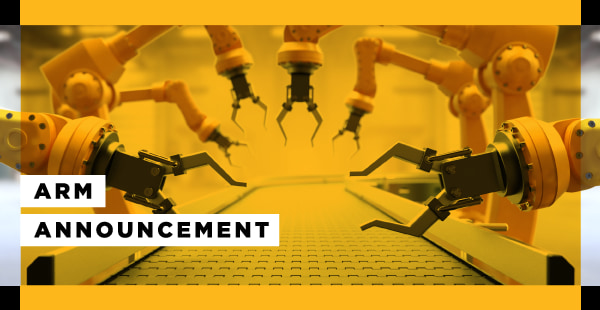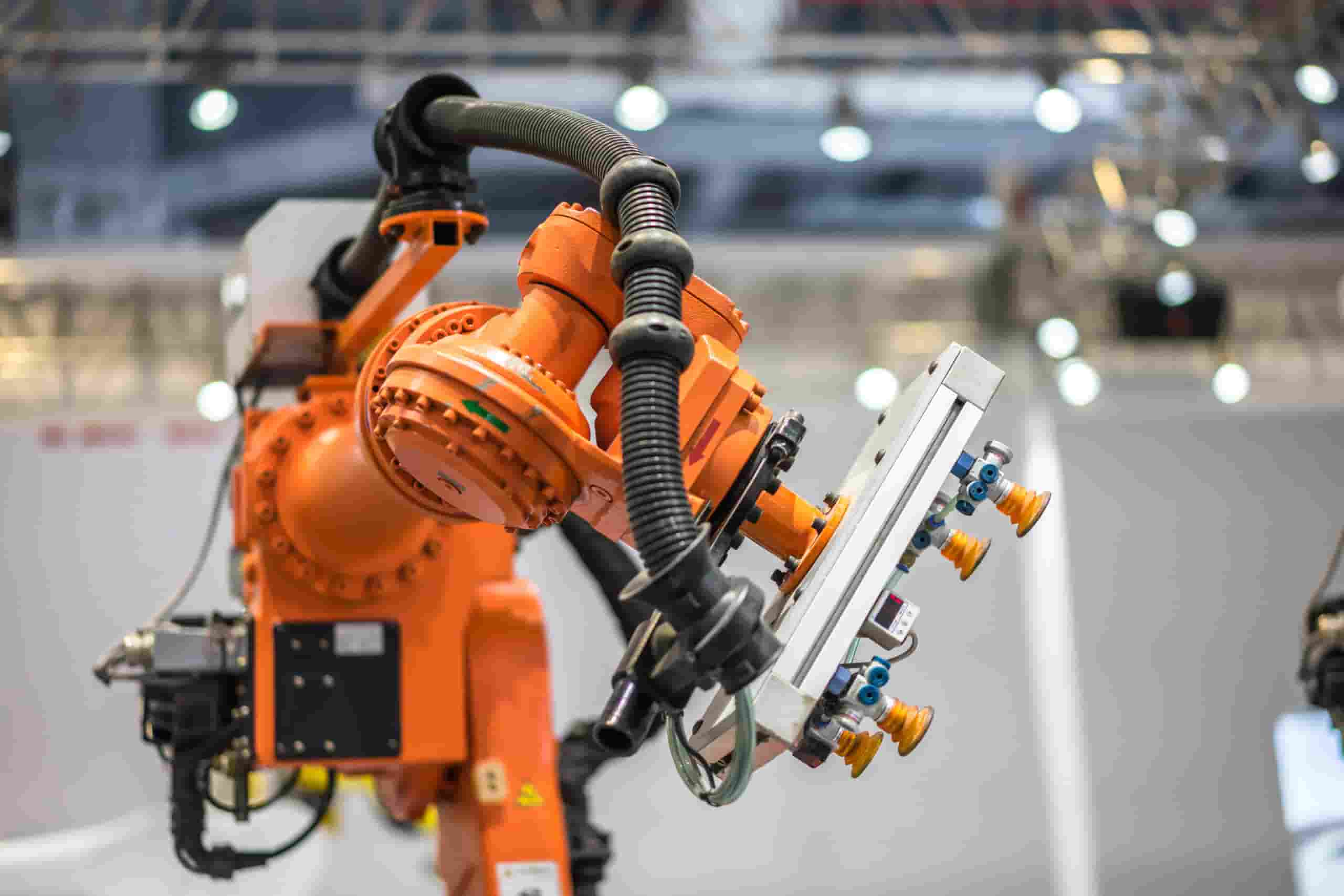
Contact:
Suzy Teele
Head of Marketing and Communications
Advanced Robotics for Manufacturing (ARM)
[email protected] O: 412-681-8264 C: 412-310-5207
Advanced Robotics for Manufacturing (ARM) Announces Selection of Eleven Technology Projects
Twenty-nine projects selected or awarded since ARM’s formation 2 years ago
Pittsburgh, PA – January 29, 2019. Advanced Robotics for Manufacturing (ARM) is proud to announce the selection of 11 projects resulting from ARM’s second formal technology project call announced in May 2018.
ARM projects strengthen U.S. manufacturing by addressing critical gaps in industrial and collaborative robot deployment and skills development to support plant automation. ARM members from across the nation collaborate to form teams and bid on project calls, which are guided by industry need. Project teams typically consist of members from manufacturing, technology, academia and economic development.
Pending negotiation, ARM expects to award approximately $5.7 million USD in funding across these 11 projects, with each contributing a similar amount as cost share, for a total $11.4 million USD investment. To date, ARM has awarded 12 technology projects and 6 education and workforce development projects. When the negotiations are finalized for these 11 projects, ARM is expected to have a total of 29 projects in place since the organization’s formation in January 2017. In addition, an education and workforce development project call is currently underway with awards expected in Spring 2019, and a new technology project call is scheduled for February 2019.
ARM’s Spring 2018 technology project call featured eight topic areas identified as critical to advancing the state of robotic automation in manufacturing: identifying and packing objects, unloading and unpacking objects, transport and delivery through a complex/crowded floor, inspection of non-standard materials, tracking and traceability of components, surface treatments, manipulating compliant materials, and software interoperability.
“By bridging the gaps between industry, academia, and government, our projects will lead the transformation of the national manufacturing landscape. These selected projects will assert US leadership, as well as improve the lives of American workers,” noted ARM CEO, Dr. Byron Clayton.
The 11 selected projects are briefly outlined below, identifying the associated principle investigating (PI) organization.
Advanced Control for Robotic Surface Treatment
PI: United Technologies Research Center (UTRC)
Description: Inaccuracies and deviations from programmed toolpath in industrial robots pose a significant barrier to the adoption of robotic technologies in surface rolling and other surface treatment processes. This project aims to develop a robust and precise robotic surface rolling cell and demonstrate deep rolling capability to improve fatigue of aerospace graded part representative of turbine blade. These advances will make robotic surface treatment processes a viable and competitive alternative to traditional CNC machine driven treatment processes.
Automatic Onsite Polishing of Large, Complex Surfaces by Real-time Planning and Control
PI: Carnegie Mellon University
Description: The polishing of large metallic parts is a critical manufacturing operation across various operations. The current process is predominantly completed manually. The objective of this project is the advancement and integration robot hardware and software to allow automatic onsite polishing.
Automation of Manufacturing Defect Correction Using Robots
PI: Siemens
Description: Finishing tasks are among the most challenging manufacturing operations from ergonomic considerations; they are often performed in dusty conditions with human workers in uncomfortable positions. This project creates an end-to-end finishing solution using a robot-based scanning and inspection system to identify imperfections and robot-based manufacturing defects correction. Automating the manufacturing finishing process will lead to reduction in time spent and overall operations costs.
Collaborative Robotic Sanding of Aircraft Panels
PI: Spirit AeroSystems
Description: This project will develop a collaborative robotics system to aid skilled workers in sanding composite aircraft panels. Automating this process will reduce worker exposure to hazardous conditions. Additionally, this project will result in increased product quality and will reduce labor hours per unit. This reduction in automation costs will allow the project to be used by both large and small manufacturers. The planned output of this project will empower American workers to compete with low-wage workers abroad by multiplying the productivity and yield of the American worker.
Functional Interoperable Compiler
PI: Siemens
Description: This technology project centers on the creation of a high-level, standardized declarative language for robot programming. With this new language, workers of any skill level will be able to specify robot commands and can use automated tools to translate functional specifications into procedural code to execute tasks in various robotic platforms.
Human-Robot Teaming for Composite Ply Lay-up and Conforming
PI: Boeing
Description: This project combines control technologies and task planning, allowing a human-robot team to better manipulate large composite sheets. The process will involve lifting, transporting, and completing the conforming process with the human-robot team interacting in an intuitive way to accomplish complex manufacturing tasks. The technology advancements generated from this project are key enablers for cobotic applications with complex task sets.
Precise Packing with Intelligence
PI: United Technologies Research Center (UTRC)
Description: Packaging is concerned with protecting products for distribution, storage, sale and use. Currently, parts are identified, inspected, and then placed in a crate manually by a trained technician through a time-intensive process. The goal of this project is to develop a hybrid cell using collaborative robots to reduce manual labor in inspection and packaging of aircraft engine parts, in turn improving operator accuracy and reducing operator risk.
Large Metallic Sanding and Finishing
Description: This project seeks to advance the technology used to sand large metallic panels that are often round and cylindrical in shape. This will project will include designing and implementing a robot end effector and utilizing vision-based machine learning to identify areas that require sanding. The end product will result in increased productivity; a single worker can now supervise the sanding of several panels simultaneously. Similarly, this reduces the technical and operational barriers to adopting robotic technologies by providing the cell layout, end effector designs, and code to automate a complete sanding cell.
Robot Raconteur: An Interoperable Middleware for Robotics
PI: Rensselaer Polytechnic Institute (RPI)
Description: This project will bridge a major gap in the current state of industrial robots by allowing for easy, rapid, and secure integration of robots, sensors, peripherals, and simulation software from multiple vendors and platforms. Funding this project will elevate the current state from research laboratory use to industrial deployment, simplifying the integration of software and hardware components.
Robotic Assembly of Garments
PI: Siemens
Description: Current robotic advancements have struggled to address the need for handling flexible materials. This project addresses this gap, working to automate the assembly of garments. Limp textiles will be stiffened, but remain compliant and flexible, so that they can be molded, welded, and sewed. The final project demonstration will showcase the sewing of a uniform.
Seamless Multi-Robot, Multi-Mac Interoperability
PI: Siemens
Description: The cost of programming, commissioning, and maintaining robotic systems remains a key inhibitor for widespread adoption. Additionally, the integration of the robot with other automation equipment remains a difficult and expensive process. This project focuses on the development of a gateway for plug-and-play communication and interoperability between OPC-UA, MTConnect, and DDS based devices, currently the standards for automation equipment and cloud and simulation platforms.
About ARM – Advanced Robotics for Manufacturing
Advanced Robotics for Manufacturing (ARM) is the nation’s leading collaborative in robotics and workforce innovation. Structured as a public-private partnership, we accelerate transformative robotic technologies and education to increase U.S. global manufacturing competitiveness. Founded in January 2017 in Pittsburgh, PA by Carnegie Mellon University, and funded by the Department of Defense, ARM is part of the Manufacturing USA® network. Learn more at www.arminstitute.org.
